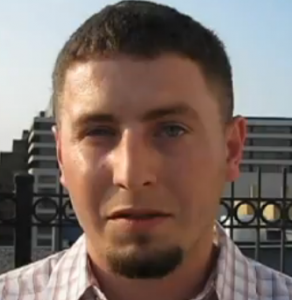
Written by Andrew Peterman
At age 17, I was found guilty of three felonies and, in addition to this, tried as an adult in Idaho. Without having gone into the juvenile justice system I would be in prison or dead.
I spent time in a number of adult and juvenile facilities in the state. With experience in both adult corrections and juvenile corrections, I can tell you a few things that affected me throughout my incarceration.
To be honest, the adult side of corrections was much easier to handle in a number of different ways. In the Ada County Jail, in western Idaho, I was put in a single cell and was in the highest security part of the facility. My days were spent reading books, sleeping, watching TV, having one hour of exercise a day in a concrete courtyard and talking to other inmates, figuring out how to be a better criminal.
It came as a big shock when I was finally placed in the Juvenile Corrections Center, in St. Anthony, in eastern Idaho. I wasn’t allowed to sleep all day and my days were structured with school, chores, physical fitness and counseling. Instead of the jailers catching me for things that were against the rules my peers were the ones holding me accountable. At first, I resented my peers for this because in jail this was considered “snitching” and if you snitched you would be beaten up.
I soon came to see that the staff and my peers cared about me and wanted the best for me. I was provided mandated counseling to get to the bottom of my problems and was able to counsel others with the same issues I had as well as other issues I didn’t have, but that made me think of solutions and develop more empathy.
Some say that people should be locked up and that is being “tough on crime.” I can tell you that being locked in a room 23 hours a day — where you can continue to develop your criminal mindset and your ego — is not as “tough” as my journey was through the juvenile system. Sure the days go by slow being in a cell, but you don’t have to deal with your issues or even pretend to care about others.
Tell me, what is harder? Learning new ways to con people, dreaming about how you are going to be a better criminal and at the same time making new drug and criminal contacts, or being confronted every time you do something that shows you have an issue and being forced to acknowledge the problem.
Do you think it’s harder to mask your problems or to have to face them and break down your negative coping mechanisms and learn new, positive ones and be held accountable to use them?
I’ll give another example of what I think is “tough.” I was in the juvenile corrections center with all types of offenders, even sex offenders. In jail their name was simply “Moe.” At St. Anthony I was expected to give all my peers at least a minimal level of respect. I’ll tell you right now that was “tough.” We held each other accountable for our attitudes towards others and anything the staff or other peers pointed out that could be linked to a behavioral issue.
One of my safeguards was to not get emotional around others because it made me look weak. With the close comradery of other peers the emotional fronts began to disappear and I got to know the person “behind the mask.” This encouraged me to help them in groups and try to empathize and understand where they were coming from and search for a solution because I cared about them. Caring about people is hard. Before, I would just look out for myself. Now I was put into a situation where I was responsible not just for myself, but for the well-being, progress and outcome of others.
The hardest thing for me was to open up and trust these other “offenders” with my personal problems. I was expected to be honest in order to progress in the program. I had to totally drop my hard persona and deal with issues that had led me into the system.
Being locked in a cell … you think that’s tough? Try having to change your life, values and morals…now that is tough.
http://t.co/g6VCHFC via @jjiega
Comment
© 2026 Created by Lucinda F. Boyd.
Powered by
![]()
You need to be a member of THE STREETS DON'T LOVE YOU BACK to add comments!
Join THE STREETS DON'T LOVE YOU BACK